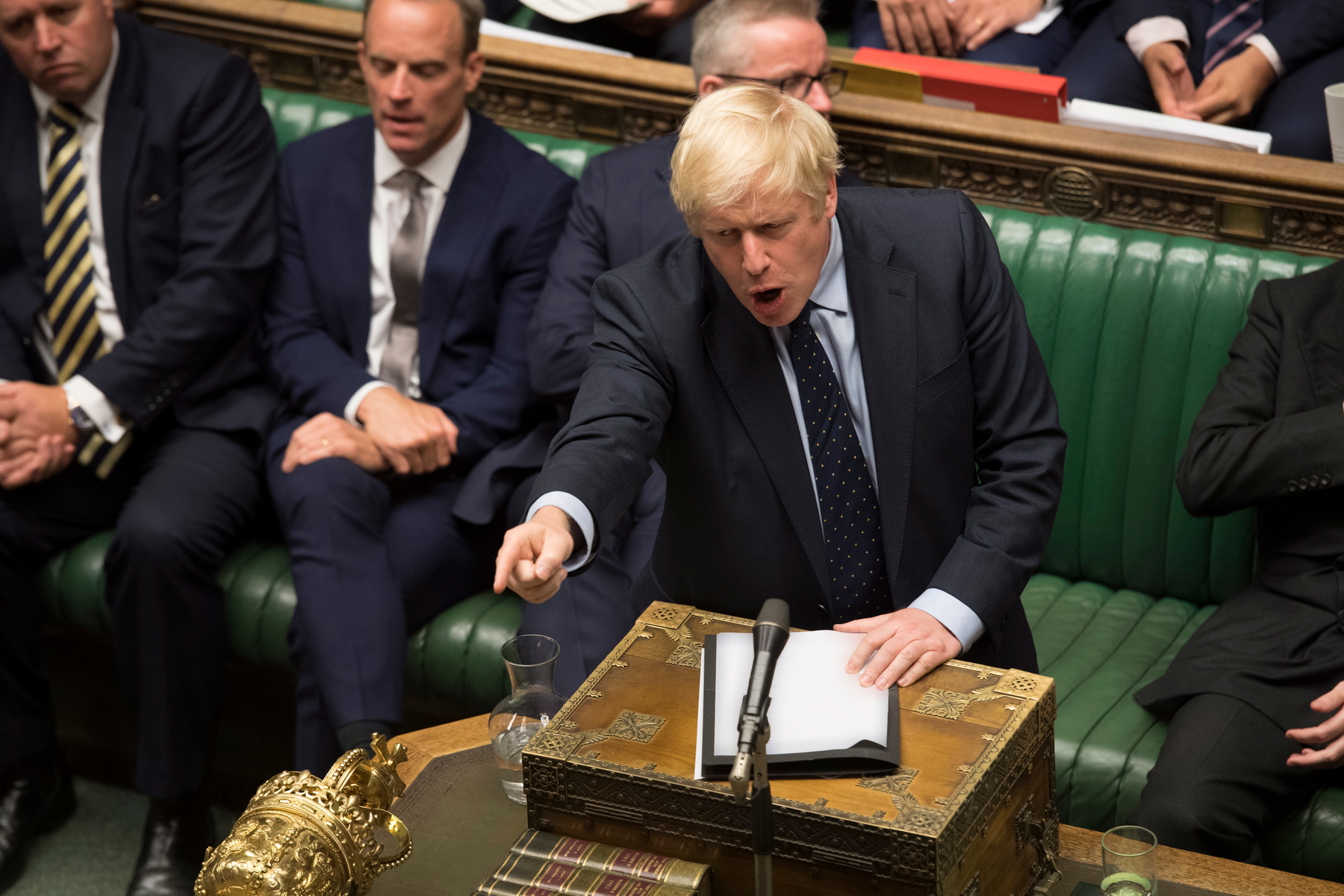Boris Johnson, the UK prime minister, has confirmed that he will call a vote on holding a general election after MPs passed a bill to block a no-deal Brexit.
His pledge came after he lost a key vote to the so-called rebel alliance of MPs, which included numerous members of his own party.
MPs voted 328 to 301 to take control of the parliamentary schedule to vote on their own bill that would force him to seek a Brexit extension from the EU.
In the current circumstances surrounding Brexit, the business of prediction is becoming hazardous.
The British constitution – the very edifice which Brexit was supposed to restore, and to which Conservatives are more committed than other parties – was, itself, the subject of a very fractious debate in the Commons ahead of the vote.
On all sides the accusation was of “irregular”, “unconstitutional” and even “dictatorial” behaviour.
All eyes on the Rebel Alliance
After winning the right to control the parliamentary timetable, MPs voted to block a no deal.
We’ve heard what the immediate consequence of that will be – the government seeking an election. But it is still not guaranteed that it will get one.
Jeremy Corbyn has insisted that his party will only do so if the voting on the legislation over an extension is completed first.
It looks likely that this will occur but it will occupy much of the time up to the prorogation and therefore put off the election. If an election does go ahead immediately, current polls suggest that the prime minister would have a good chance of gaining an overall Commons majority.
If an election does go ahead immediately, current polls suggest that the prime minister would have a good chance of gaining an overall Commons majority.

British Prime Minister Boris Johnson gesturing during a dramatic session in the House of Commons Source: UK Parliament
This will be easier if Nigel Farage confines his Brexit Party troops to barracks to give the Conservatives a free run.
This is made more likely if the government continues its hardline position on leaving without a deal if necessary.
The opposition, meanwhile, will split the anti-no deal vote and struggle to secure enough votes for a majority.
A lost majority and a changing party
But if a Conservative government is elected, we will have to wonder what kind of Conservative government it will be. A total of 21 Conservative MPs rebelled to vote against Mr Johnson.
He is still threatening to “purge” such dissidents by withdrawing the party whip from them.
Without it, the MPs will be unable to present themselves as Conservative candidates in any general election pending its restoration.
As well as further undercutting Mr Johnson’s majority, this represents a fundamental shift in British political culture.
The major parties are traditionally broad churches.
They have to embrace a variety of views in order to gain a majority of seats in the House of Commons under the UK electoral system.
Parties have therefore usually punished disloyalty to the leadership by temporary rather than permanent exclusion (the current prime minister and leader of the opposition have both, in their time, benefited from this leniency).
To insist on continuous universal discipline will create a different sort of party. It will be smaller, more ideological and less flexible than the UK is used to.
The sort of governments produced by such parties will be different, too.
Uncharted waters
With these forces at play, the UK is either in line to get an unprecedentedly unpopular and ideological government or a new administration formed by a combination of opponents of no deal. Neither of these is “business as usual” for the UK.
The alternative is that, under the Fixed Term Parliaments Act, Mr Johnson’s minority government limps on, directed by a Commons which does not want it but which fears an election more.
This too would be a novelty for a UK used to single-party five-year governments which command the House, and not necessarily a welcome one.
Where does this leave us? Successful prediction in horse-racing requires knowledge of horses’ and riders’ form, track and conditions. The very rules of the race are now in question.
The consequences of this toxic atmosphere will last longer than any single race, however exciting and unpredictable.
Matthew Cole is a Teaching Fellow in the Department of History and the University of Birmingham. He does not work for, consult, own shares in or receive funding from any company or organisation that would benefit from this article, and has disclosed no relevant affiliations beyond their academic appointment.

